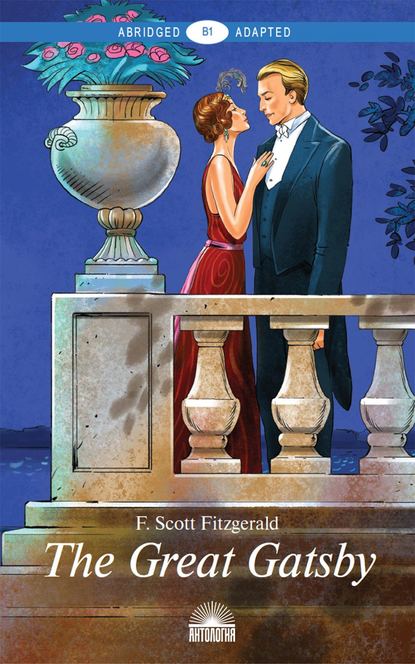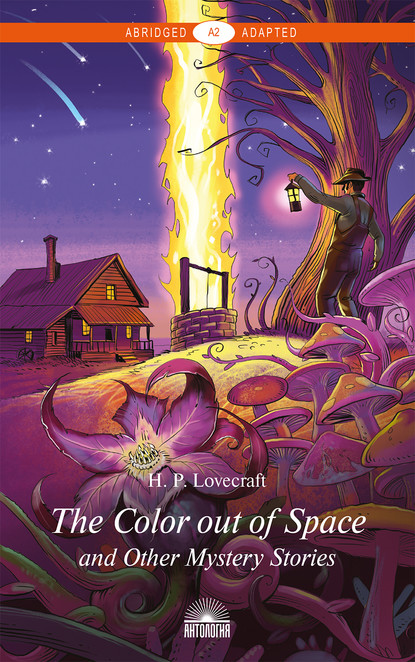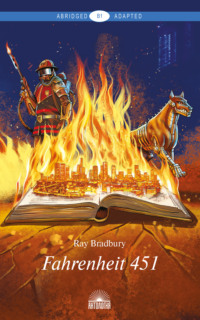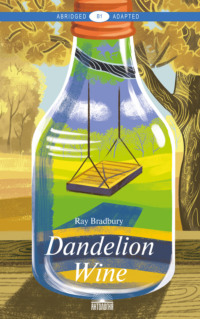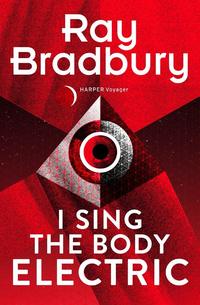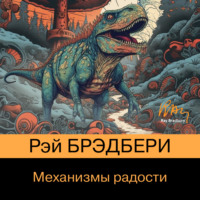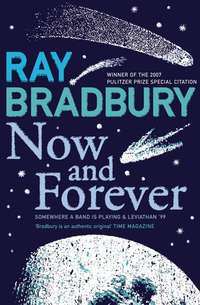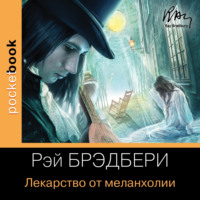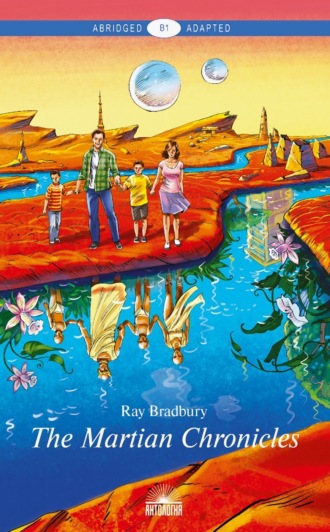
Полная версия
The Martian Chronicles / Марсианские хроники
When the town people found the rocket at sunset they wondered what it was. Nobody knew, so it was sold to a junk-man to be broken up for scrap metal.
That night it rained all night. The next day was fair and warm.
March 2000: The Taxpayer
He wanted to go to Mars on the rocket. He went down to the rocket field in the early morning and yelled through the wire fence at the men in uniform that he wanted to go to Mars. He told them he was a taxpayer, his name was Pritchard, and he had a right to go to Mars. Wasn't he born right here in Ohio? Wasn't he a good citizen? Then why couldn't he go to Mars? He shook his fists at them and told them that he wanted to get away from Earth; anybody with any sense wanted to get away from Earth. There was going to be a big atomic war on Earth in about two years, and he didn't want to be here when it happened. He and thousands of others like him, if they had any sense, would go to Mars. To get away from wars and censorship and conscription and government control of this and that, of art and science! You could have Earth! He was offering his good right hand, his heart, his head, for the opportunity to go to Mars! What did you have to do, what did you have to sign, whom did you have to know, to get on the rocket?
They laughed out through the wire screen at him. He didn't want to go to Mars, they said. Didn't he know that the First and Second Expeditions had failed, had vanished; the men were probably dead?
But they couldn't prove it, they didn't know for sure, he said, clinging to the wire fence. Maybe it was a land of milk and honey[31] up there, and Captain York and Captain Williams had just never bothered to come back. Now were they going to open the gate and let him in to board the Third Expeditionary Rocket, or was he going to have to kick it down?
They told him to shut up.
He saw the men walking out to the rocket.
Wait for me! he cried. Don't leave me here on this terrible world, I've got to get away; there's going to be an atom war! Don't leave me on Earth!
They dragged him, struggling, away. They slammed the police wagon door and drove him off into the early morning, his face pressed to the rear window, and just before they moved over a hill, he saw the red fire and heard the big sound and felt the huge tremor as the silver rocket shot up and left him behind on an ordinary Monday morning on the ordinary planet Earth.
April 2000: The Third Expedition
The ship came down from space. It came from the stars. It was a new ship; it had fire in its body and men in its metal cells. In it were seventeen men, including a captain. The crowd at the Ohio field had shouted and waved their hands up into the sunlight, and the rocket had bloomed out great flowers of heat and color and run away into space on the third voyage to Mars!
Now it was in the upper Martian atmospheres. It was still a thing of beauty and strength. The men within it had been battered, sickened, made well again, each in his turn. One man had died, but now the remaining sixteen, with their eyes clear in their heads and their faces pressed to the thick glass ports, watched Mars swing up under them.
“Mars!” cried Navigator Lustig.
“Good old Mars!” said Samuel Hinkston, archaeologist.
“Well,” said Captain John Black.
The rocket landed on a lawn of green grass. Outside, upon this lawn, stood an iron deer. Further up on the green stood a tall brown Victorian house, quiet in the sunlight, its windows made of blue and pink and yellow and green colored glass. Upon the porch were geraniums and an old swing which was hooked into the porch ceiling and which now swung back and forth, back and forth, in a little breeze. Through the front window you could see a piece of music titled “Beautiful Ohio” sitting on the music rest.
Around the rocket in four directions spread the little town, green and motionless in the Martian spring. There were white houses and red brick ones, and tall elm trees blowing in the wind, and tall maples and horse chestnuts. And church steeples with golden bells.
The rocket men looked out and saw this. Then they looked at one another and then they looked out again. They held to each other's elbows, suddenly unable to breathe. Their faces grew pale.
“I'll be damned[32],” whispered Lustig, rubbing his face with his numb fingers. “I'll be damned.”
“It just can't be,” said Samuel Hinkston.
“Lord[33],” said Captain John Black.
There was a call from the chemist. “Sir, the atmosphere is thin for breathing. But there's enough oxygen. It's safe.”
“Then we'll go out,” said Lustig.
“Hold on,” said Captain John Black. “How do we know what this is?”
“It's a small town with thin but breathable air in it, sir.”
“And it's a small town the like of Earth towns,” said Hinkston, the archaeologist. “Incredible. It can't be, but it is.”
Captain John Black looked at him. “Do you think that the civilizations of two planets can progress at the same rate and evolve in the same way, Hinkston?”
“I wouldn't have thought so, sir.”
Captain Black stood by the port. “Look out there. The geraniums. A specialized plant. That specific variety has only been known on Earth for fifty years. Then tell me if it is logical that the Martians should have: one, an instrument that looks like a piano and probably is a piano; two, porch swings; and three, if you look closely through this telescopic lens here, is it logical that a Martian composer would have published a piece of music titled, strangely enough, 'Beautiful Ohio'? All of which means that we have an Ohio River on Mars!”
“Captain Williams, of course!” cried Hinkston.
“What?”
“Captain Williams and his crew of three men! Or Nathaniel York and his partner. That would explain it!”
“That would explain absolutely nothing. As far as we know, the York expedition exploded the day it reached Mars, killing York and his partner. As for Williams and his three men, their ship exploded the second day after their arrival. At least the pulsations from their radios stopped at that time, so we figure that if the men were alive after that they'd have contacted us. And anyway, the York expedition was only a year ago, while Captain Williams and his men landed here some time during last August. Theorizing[34] that they are still alive, could they, even with the help of a brilliant Martian race, have built such a town as this and aged it in so short a time? Look at that town out there; why, it's been standing here for the last seventy years. No, this isn't York's work or Williams'. It's something else. I don't like it. And I'm not leaving the ship until I know what it is.”
“For that matter[35],” said Lustig, nodding, “Williams and his men, as well as York, landed on the opposite side of Mars. We were very careful to land on this side.”
“Quite right. Just in case a hostile local tribe of Martians killed off York and Williams, we have instructions to land in a further region, to avoid such a disaster. So here we are, as far as we know, in a land that Williams and York never saw.”
“Damn it,” said Hinkston, “I want to get out into this town, sir, with your permission. It may be there are similar civilizations on every planet in our sun system. We may be on the threshold of the greatest psychological and metaphysical discovery of our age!”
“I'm willing to wait a moment,” said Captain John Black.
“It may be, sir, that we're looking upon a phenomenon that, for the first time, would absolutely prove the existence of God, sir.”
“There are many people who believe in God without such proof, Mr. Hinkston.”
“I'm one myself, sir. But certainly a town like this could not occur without divine intervention. The detail. It fills me with such feelings that I don't know whether to laugh or cry.”
“Do neither, then, until we know what we're up against[36].”
“Up against?” Lustig broke in. “Against nothing, Captain. It's a good, quiet green town, a lot like the old- fashioned one I was born in. I like the looks of it.”
“When were you born, Lustig?”
“Nineteen-fifty, sir.”
“And you, Hinkston?”
“Nineteen fifty-five, sir. Grinnell, Iowa. And this looks like home to me.”
“Hinkston, Lustig, I could be either of your fathers. I'm just eighty years old. Born in 1920 in Illinois, and thanks to God and a science that, in the last fifty years, knows how to make some old men young again, here I am on Mars, not any more tired than the rest of you, but more suspicious. This town out here looks very peaceful and cool, and so much like Green Bluff, Illinois, that it frightens me. It's too much like Green Bluff.” He turned to the radioman. “Radio Earth. Tell them we've landed. That's all. Tell them we'll radio a full report tomorrow.”
“Yes, sir.”
Captain Black looked out the rocket port with his face that should have been the face of a man of eighty but seemed like the face of a man in his fortieth year. “Tell you what we'll do, Lustig; you and I and Hinkston'll look the town over. The other men'll stay aboard. If anything happens they can get the hell out[37]. A loss of three men's better than a whole ship. If something bad happens, our crew can warn the next rocket. That's Captain Wilder's rocket, I think, due to be ready to take off next Christmas. If there's something hostile about Mars we certainly want the next rocket to be well armed.”
“So are we. We've got a regular arsenal with us.”
“Tell the men to stand by the guns then. Come on, Lustig, Hinkston.”
The three men walked together down.
It was a beautiful spring day. A robin sat on a blossoming apple tree and sang continuously. Showers of petal snow fell down when the wind touched the green branches, and the blossom scent drifted upon the air. Somewhere in the town someone was playing the piano and the music came and went, came and went, softly.
The three men stood outside the ship. They gasped at the thin, thin air and moved slowly so as not to tire themselves.
The sky was serene and quiet, and somewhere a stream of water ran through the cool caverns.
“Sir,” said Samuel Hinkston, “it must be, it has to be, that rocket travel to Mars began in the years before the first World War!”
“No.”
“How else can you explain these houses, the iron deer, the pianos, the music?” Hinkston took the captain's elbow and looked into the captain's face. “Say that there were people in the year 1905 who hated war and got together with some scientists in secret and built a rocket and came out here to Mars – ”
“No, no, Hinkston.”
“Why not? The world was a different world in 1905; they could have kept it a secret much more easily.”
“But a complex thing like a rocket, no, you couldn't keep it secret.”
“And they came up here to live, and naturally the houses they built were similar to Earth houses because they brought the culture with them.”
“And they've lived here all these years?” said the captain.
“In peace and quiet, yes. Maybe they made a few trips, enough to bring enough people here for one small town, and then stopped for fear of being discovered. That's why this town seems so old-fashioned. I don't see a thing, myself, older than the year 1927, do you? Or maybe, sir, rocket travel is older than we think. Perhaps it started in some part of the world centuries ago and was kept secret by the small number of men who came to Mars with only occasional visits to Earth over the centuries.”
“You make it sound almost reasonable.”
“It has to be. We've the proof here before us; all we have to do is find some people and check it.”
The grass under their boots smelled from a fresh mowing. In spite of himself, Captain John Black felt a great peace come over him. It had been thirty years since he had been in a small town, and the buzzing of spring bees on the air lulled and quieted him, and the fresh look of things was a balm to the soul.
They set foot upon the porch and walked to the screen door. Inside they could see a curtain hung across the hall entry, and a crystal chandelier and a Maxfield Parrish[38] painting framed on one wall over a comfortable chair. The house smelled old, and looked comfortable. You could hear the tinkle of ice in a lemonade pitcher. In a distant kitchen, because of the heat of the day, someone was preparing a cold lunch. Someone was humming under her breath, high and sweet.
Captain John Black rang the bell.
Footsteps came along the hall, and a kind-faced lady of some forty years, dressed in a sort of dress you might expect in the year 1909, peered out at them.
“Can I help you?” she asked.
“Beg your pardon,” said Captain Black uncertainly. “But we're looking for – that is, could you help us – ” He stopped. She looked out at him with dark, wondering eyes.
“If you're selling something – ” she began.
“No, wait!” he cried. “What town is this?”
She looked him up and down. “What do you mean, what town is it? How could you be in a town and not know the name?”
The captain looked as if he wanted to go sit under a shady apple tree. “We're strangers here. We want to know how this town got here and how you got here.”
“Are you census takers?”
“No.”
“Everyone knows,” she said, “this town was built in 1868. Is this a game?”
“No, not a game!” cried the captain. “We're from Earth.”
“Out of the ground, do you mean[39]?” she wondered.
“No, we came from the third planet, Earth, in a ship. And we've landed here on the fourth planet, Mars – ”
“This,” explained the woman, as if she were addressing a child, “is Green Bluff, Illinois, on the continent of America, surrounded by the Atlantic and Pacific oceans, on a place called the world, or, sometimes, the Earth. Go away now. Goodbye.”
She trotted down the hall, running her fingers through the curtains.
The three men looked at one another.
“Let's knock the screen door in,” said Lustig.
“We can't do that. This is private property. Good God!”
They went to sit down on the porch step.
“Did it ever strike you, Hinkston, that perhaps we got ourselves somehow off track[40], and by accident came back and landed on Earth?”
“How could we have done that?”
“I don't know, I don't know. Oh God, let me think.”
Hinkston said, “But we checked every mile of the way. Our chronometers said so many miles. We went past the Moon and out into space, and here we are. I'm positive[41] we're on Mars.”
Lustig said, “But suppose, by accident[42], in space, in time, we got lost in the dimensions and landed on an Earth that is thirty or forty years ago.”
“Oh, go away, Lustig!”
Lustig went to the door, rang the bell, and called into the rooms: “What year is this?”
“Nineteen twenty-six, of course,” said the lady, sitting in a rocking chair, taking a sip of her lemonade.
“Did you hear that?” Lustig turned wildly to the others. “Nineteen twenty-six! We have gone back in time! This is Earth!”
Lustig sat down, and the three men were taken by wonder and terror. The captain said, “I didn't ask for a thing like this. It scares the hell out of me. How can a thing like this happen? I wish we'd brought Einstein with us.”
“Will anyone in this town believe us?” said Hinkston. “Are we playing with something dangerous? Time, I mean. Shouldn't we just take off and go home?”
“No. Not until we try another house.”
They walked three houses down to a little white cottage under an oak tree. “I like to be as logical as I can be,” said the captain. “Suppose, Hinkston, as you originally suggested, that rocket travel occurred years ago? And when the Earth people lived here a number of years they began to get homesick for Earth. First a mild neurosis about it, then a real psychosis. Then insanity. What would you do as a psychiatrist if faced with such a problem?”
Hinkston thought. “Well, I think I'd rearrange the civilization on Mars so it looked like Earth more and more each day. If there was any way of reproducing every plant, every road, and every lake, and even an ocean, I'd do so. Then by some crowd hypnosis I'd convince everyone in a town that this really was Earth, not Mars at all.”
“Good enough, Hinkston. I think we're on the right track now. That woman in that house back there just thinks she's living on Earth. It protects her sanity. She and all the others in this town are the patients of the greatest experiment in migration and hypnosis you will ever see in your life.”
“That's it, sir!” cried Lustig.
“Right!” said Hinkston.
“Well.” The captain sighed. “Now we've got somewhere. I feel better. It's all a bit more logical. That talk about time and going back and forth turns my stomach upside down[43]. But this way – ” The captain smiled. “Well, well, it looks as if we'll be fairly popular here.”
“Or will we?” said Lustig. “After all, like the Pilgrims, these people came here to escape Earth. Maybe they won't be too happy to see us. Maybe they'll try to drive us out or kill us.”
“We have superior weapons. This next house now. Up we go.”
But they had hardly crossed the lawn when Lustig stopped and looked down the quiet, dreaming afternoon street. “Sir,” he said.
“What is it, Lustig?”
“Oh, sir, sir, what I see – ” said Lustig, and he began to cry. His fingers came up, twisting and shaking, and his face was all wonder and joy and incredulity. He sounded as if at any moment he might go quite insane with happiness. He looked down the street and began to run, stumbling awkwardly, falling, picking himself up, and running on.
“Look, look!”
“Don't let him get away!” The captain broke into a run.
Now Lustig was running swiftly, shouting. He turned into a yard halfway down the shady street and jumped upon the porch of a large green house with an iron rooster on the roof.
He was beating at the door when Hinkston and the captain ran up behind him. They were all exhausted from their run in the thin air. “Grandma! Grandpa!” cried Lustig.
Two old people stood in the doorway.
“David!” they exclaimed and rushed out to embrace and pat him on the back and move around him. “David, oh, David, it's been so many years! How you've grown, boy; how big you are, boy. Oh, David boy, how are you?”
“Grandma, Grandpa!” sobbed David Lustig. “You look fine, fine!” He held them, turned them, kissed them, hugged them. The sun was in the sky, the wind blew, the grass was green, the screen door stood wide.
“Come in, boy, come in. There's iced tea for you, fresh, lots of it!”
“I've got friends here.” Lustig turned and waved at the captain and Hinkston, laughing. “Captain, come on up.”
“Howdy,[44]” said the old people. “Come in. Any friends of David's are our friends too. Don't stand there!”
In the living room of the old house it was cool, and a grandfather clock ticked in one corner. There were soft pillows on large couches and walls filled with books and a rug with rose pattern, and iced tea in the hand, cool on the thirsty tongue.
“Here's to our health.” Grandma raised her glass.
“How long you been here, Grandma?” said Lustig.
“Ever since we died,” she said tartly.
“Ever since you what?” Captain John Black set down his glass.
“Oh yes.” Lustig nodded. “They've been dead thirty years.”
“And you sit there calmly!” shouted the captain.
The old woman winked. “Who are you to question what happens? Here we are. What's life, anyway? All we know is here we are, alive again, and no questions asked. A second chance.” She came over and held out her thin wrist. “Feel.” The captain felt. “Solid, ain't it?” she asked. He nodded. “Well, then,” she said triumphantly, “why go around questioning?”
“Well,” said the captain, “it's simply that we never thought we'd find a thing like this on Mars.”
“And now you've found it. I dare say there's lots on every planet that'll show you God's infinite ways[45].”
“Is this Heaven?” asked Hinkston.
“Nonsense, no. It's a world and we get a second chance. Nobody told us why. But then nobody told us why we were on Earth, either. That other Earth, I mean. The one you came from. How do we know there wasn't another before that one?”
“A good question,” said the captain.
Lustig kept smiling at his grandparents. “Gosh,[46] it's good to see you. Gosh, it's good.”
The captain stood up and slapped his hand on his leg in a casual fashion. “We've got to be going. Thank you for the drinks.”
“You'll be back, of course,” said the old people. “For supper tonight?”
“We'll try to make it, thanks. There's so much to be done. My men are waiting for me back at the rocket and – ” He stopped. He looked toward the door, startled.
Far away in the sunlight there was a sound of voices, a shouting and a great hello.
“What's that?” asked Hinkston.
“We'll soon find out.” And Captain John Black was out the front door, running across the green lawn into the street of the Martian town.
He stood looking at the rocket. The ports were open and his crew was streaming out, waving their hands. A crowd of people had gathered, and through and among these people the members of the crew were hurrying, talking, laughing, shaking hands. People did little dances. The rocket lay empty and abandoned.
A brass band played in the sunlight. Little girls with golden hair jumped up and down. Little boys shouted, “Hooray!” Fat men passed around ten-cent cigars. The town mayor made a speech. Then each member of the crew, with a mother on one arm, a father or sister on the other, were going down the street into little cottages or big mansions.
“Stop!” cried Captain Black.
The doors slammed shut.
The heat rose in the clear spring sky, and all was silent, leaving the rocket to shine alone in the sunlight.
“Abandoned!” said the captain. “They abandoned the ship, they did! I'll have their skins[47], by God! They had orders!”
“Sir,” said Lustig, “don't be too hard on them[48]. Those were all old relatives and friends.”
“That's no excuse!”
“Think how they felt, Captain, seeing familiar faces outside the ship!”
“They had their orders, damn it!”
“But how would you have felt, Captain?”
“I would have obeyed orders – ” The captain's mouth remained open.
Going along the sidewalk under the Martian sun, tall, smiling, eyes amazingly clear and blue, came a young man of some twenty-six years. “John!” the man called out, and broke into a trot.
Конец ознакомительного фрагмента.
Текст предоставлен ООО «Литрес».
Прочитайте эту книгу целиком, купив полную легальную версию на Литрес.
Безопасно оплатить книгу можно банковской картой Visa, MasterCard, Maestro, со счета мобильного телефона, с платежного терминала, в салоне МТС или Связной, через PayPal, WebMoney, Яндекс.Деньги, QIWI Кошелек, бонусными картами или другим удобным Вам способом.
Примечания
1
Размечталась.
2
Ты серьёзно?
3
Пойдёт тебе на пользу
4
Поездка пойдёт нам на пользу.
5
Тишина и покой.
6
Так не принимают гостей!
7
Интересно, что там происходит.
8
Позвоню ему и отчитаю как следует!
9
Вызвал его на дуэль
10
Лицо капитана осветила белозубая улыбка.
11
На глаза навернулись слёзы.
12
Вот, пожалуй, и всё.
13
Они совершенно выдохлись.
14
Выкладывайте!
15
Вот это другое дело!
16
охали и ахали
17
Как вы сказали?
18
В сумасшедшем доме.
19
часто встречающееся психическое состояние
20
Видите ли, лечение весьма радикальное.
21
слуховыми, вкусовыми, а также осязательными и оптическими фантазиями


